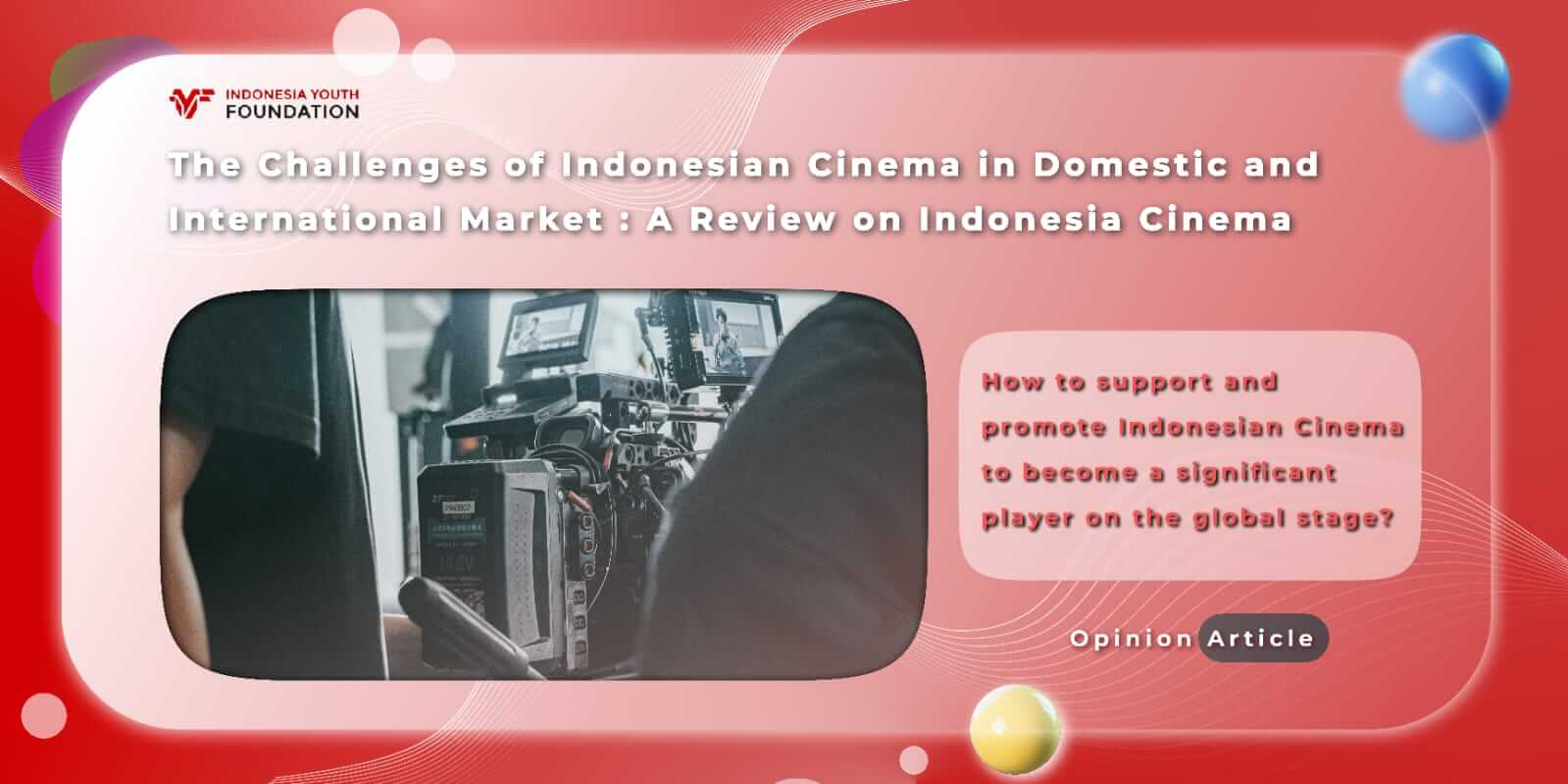When Young People Take Green Action: Rootventure for Future Sustainability
Since its inception in the early 1930s, Indonesian cinema has developed into a significant and influential medium within Southeast Asia and has produced some of the most acclaimed and internationally recognized films in Asia, including classics such as The Untouched (Dirac Rahardjo, 1955) and The Act of Killing (Joshua Oppenheimer, 2012). Yet, there is still much work to be done in terms of supporting and promoting Indonesian cinema both at home and abroad. This paper will explore the current state of Indonesian cinema and explore some of the barriers that impede its international reach.
Since gaining independence in 1945, Indonesia has gone through periods of rapid development as well as economic and political instability. As a result of these turbulent times, there have been significant shifts in society and culture. In particular, there has been a rise in the popularity of new media platforms, such as film and social media, which have helped to bridge the gap between rural and urban areas and promote freedom of expression.
According to recent studies, there are three main factors restricting the growth of the Indonesian film industry: the limited availability of funding for independent film projects, the low level of technical proficiency among Indonesian filmmakers, and the lack of reliable distribution platforms. While all of these issues need to be addressed if the country is to realize its ambitions of becoming a significant player on the global stage, the biggest challenge so far is the lack of funding for local productions. There is a huge demand for new movies in Indonesia but in fact, there are not enough resources to meet this demand and producers are unable to finance new productions on their own because there isn’t enough money in the domestic market to cover the costs. As a result, they have to rely on funding from foreign sources which is often difficult to obtain, as the financing institutions have little interest in supporting local films because they are rarely able to recoup their costs in the local market.
Moreover, technical challenges can also hamper the growth of the film industry. This is partly due to a lack of qualified technicians as well as outdated equipment that makes it very difficult to produce high-quality films using traditional methods. In recent years, many producers have begun to opt for digital production methods but they are still rare since there are only a few studios that have the expertise required to operate them effectively. Then, in the education sector, the absence of formal training programs prepared for the film and television industry in the country is one of the factors that detain the growth of the Indonesian industry. Whereas, efforts need to be made to introduce more courses on these topics in schools and universities, so that the next generation of filmmakers is well equipped to take on the challenges that lie ahead.
Lastly, there are currently around 200 working cinemas in the country and around 250 titles screened each year on international screens, but most of the films produced remain beyond the reach of Indonesians since the lack of adequate distribution channels. Thus to reach wide audiences, the movie needs to be shown in cinemas all over the world. Unfortunately, most of the cinemas are only located in major cities and there is therefore a huge gap between the people in rural areas and those in the cities when it comes to access to quality entertainment. In addition, most tickets are expensive due to high taxes, making it even more difficult for the average person to access this form of entertainment. This is an issue that needs to be addressed urgently if Indonesia is to have any hope of becoming a significant player in the international film industry.
Even with all of these factors, a few local films managed to break barriers. The Raids franchise managed to score big at the box office domestically and internationally and Yuni (2021) managed to win the Platform Prize Award at the 2021 TIFF awards shredding some hope for Indonesian cinema scene for future generations.
Sources
- https://www.investindonesia.go.id/en/article-investment/detail/supporting-the-indonesian-film-industry-through-the-national-film-market
- https://www.cnnindonesia.com/hiburan/20210919101914-220-696307/film-yuni-karya-kamila-andini-menang-di-tiff-2021
- https://www.nanyangbridge.com/international-movies-filmed-in-indonesia/
Images
- Image 1 – https://jabar.tribunnews.com/2022/04/21/sinopsis-dan-review-film-yuni-sudah-bisa-ditonton-di-disney-peringati-hari-kartini
- Image 2 – https://www.liputan6.com/showbiz/read/4212665/rindu-dengan-film-the-raid-saksikan-secara-gratis-di-vidio
About The Writer

Fikry Muhammad Reza Al-Hasin or commonly called Fikry was a fresh graduate of International Relations of the University of Muhammadiyah Malang. He is a private officer by day and an aspiring writer by night.








